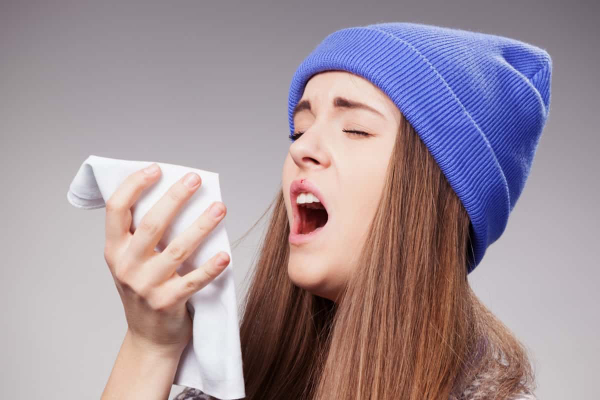Allergy is a famed word — it conforms to a clear, unexpected reaction of the body to any substance that may, otherwise, be harmless.
What happens in allergic reactions? Our immune system identifies certain substances as allergens and produces antibodies, which now go into action to destroy them and, in the process, produce inflammatory symptoms.
What can cause allergic reactions? Certain foods, like nuts, seafood, dairy products, domestic chemicals, such as cleaning agents and cosmetics, environmental, like dust, mites, moulds, cold air, hot sun, as also insect bites, and so on.
What are the symptoms of an allergic reaction? This is mirrored from the most exposed systems of the human body — respiratory and skin, with symptoms, like runny, stuffy, blocked nose, wet, dry cough, sneezing, irritation in the throat, breathlessness, wheezing, headache, hoarseness of voice, rashes, or hives, itching, scaling, and dry patches.
Are allergies genetic? Yes, a tendency for allergies is inherited and it may present early in life, or late, or not at all. Allergies may also develop due to a change of place and environment, or change in the immune system, primarily because of medications, disease, or illness, diet and lifestyle. There are true allergies, like lactose intolerance since birth, or hypersensitive reactions to certain allergens, most commonly nuts, prawns, metals, like copper, certain medicines; these cases, though extant, are rare.
Can allergies be cured? The tendency to allergies may possibly remain; if there is a genetic factor, it can be kept under control by following certain regimens.
What does Ayurveda say about allergies? In any disease, or illness, there may be a certain ‘envelopment’ of tridoshas [vata, pitta, kapha] and the dhatus [tissues]. Individuals who have a tendency for allergies, owing to inheritance, or incorrect practices of diet and lifestyle, develop a breach in the integrity of immune edifice of any particular system. This may make them vulnerable to allergic reactions, whenever there is a trigger.
For example, when there is a sudden, or continued exposure to cold winds, vata and kapha doshas are triggered [and, they may cause a stuffy nose, wet cough, or even hives]; when there is exposure to hot sunlight for prolonged periods, the pitta dosha is vitiated [reddish rashes on the skin, or headache], and so on. All of this and more may wobble our immune system leading to allergy symptoms — when the doshas in the respiratory system are affected, they would present with allergic rhinitis, bronchitis, sinusitis, or asthma; when it is the skin, the outcome may be atopic dermatitis, or eczema, contact dermatitis, or urticarial rashes.
Self-Help
- Keep away from all known allergic factors
- Refrain from the constant use of common triggers, like curd, ice-cream, confectioneries, processed and fast-food, also bad weather — to avoid the accumulation, or vitiation, of the doshas
- Follow general healthy practices, like keeping yourself well-hydrated, with good bowel and bladder habits and regular physical exercises — they help to eliminate wastes and toxins from the body
- Steam with plain water every day and apply oil in the nostrils to strengthen the nasal mucous membrane
- Use accessories — umbrella during the rains, jackets in winter, sunglasses, or sunscreens, in summers etc.,], to avoid exposure
- Boost your immunity with vitamin and antioxidant supplements
- Some of the herbs, or spices, from your kitchen are handy; the most popular being turmeric, pepper, ginger, coriander, and cardamom
- There are herbal formulations available too, viz., haridra khanda, dashamularista, agastya haritaki leha, khadirarista, amalaki rasayana, guduchi ghana vati, yastimadhu, triphala ghrita. They are best prescribed by a professional Ayurveda physician — to help you ‘beat’ your allergic distress and/or also prevent them.

